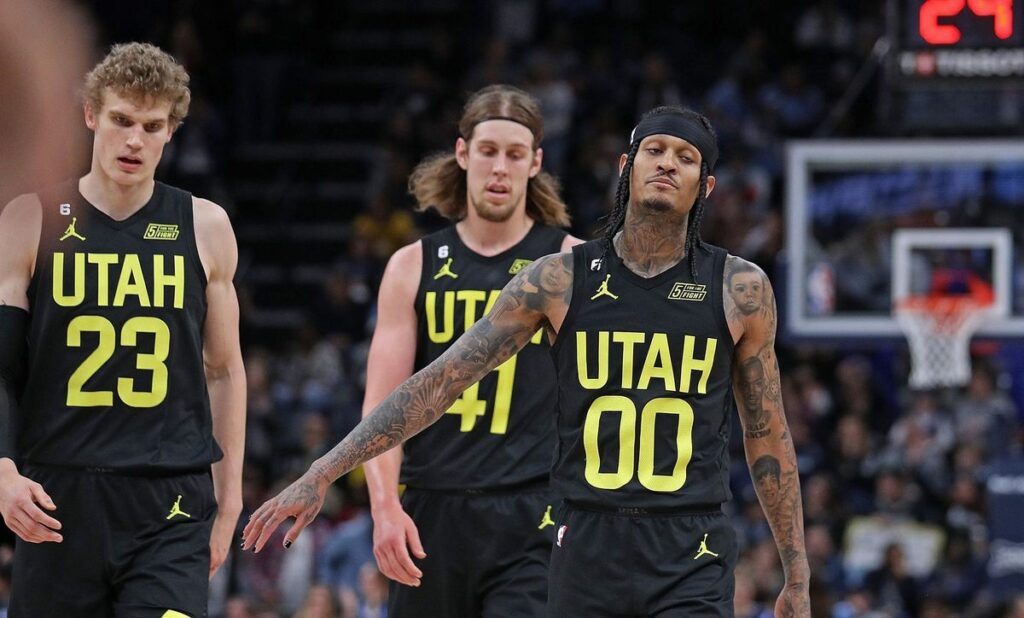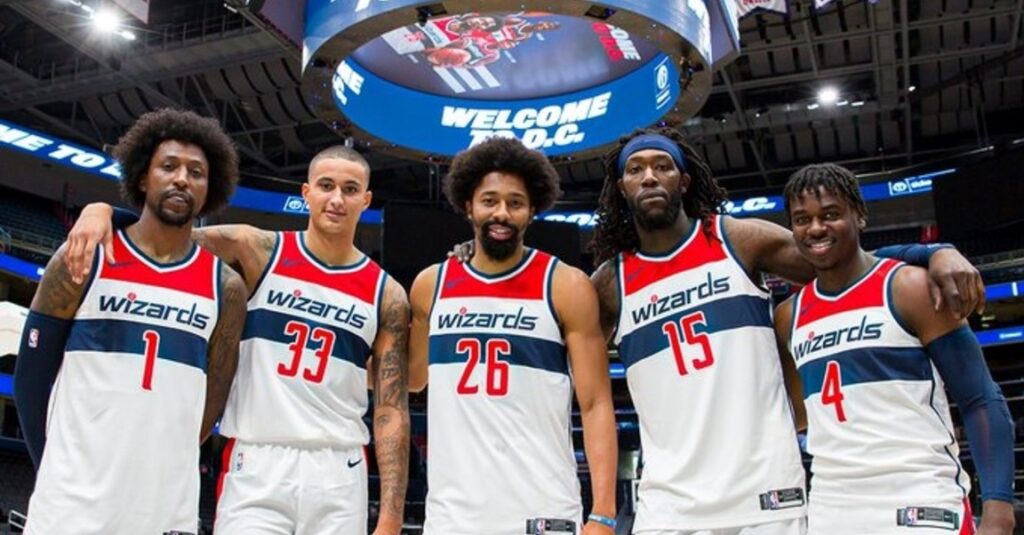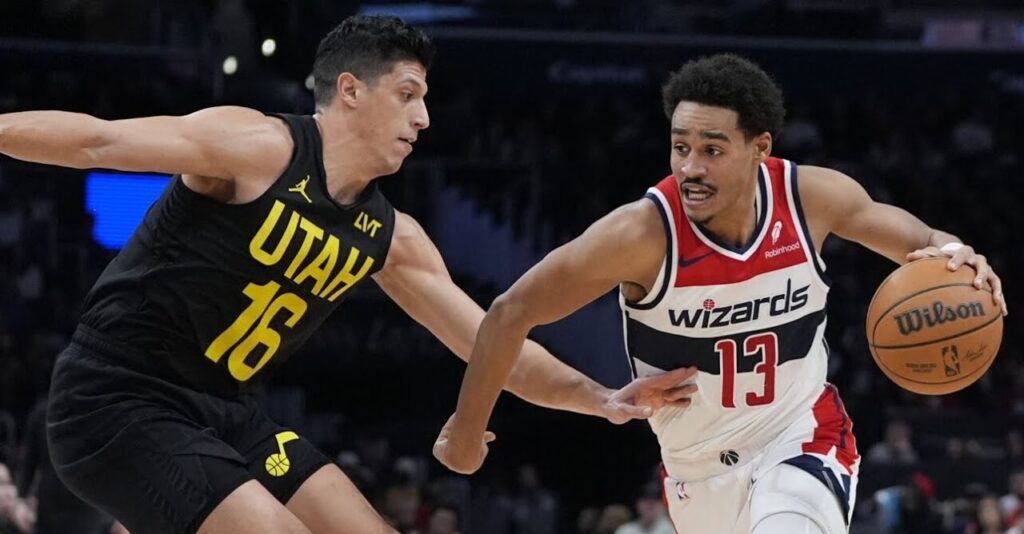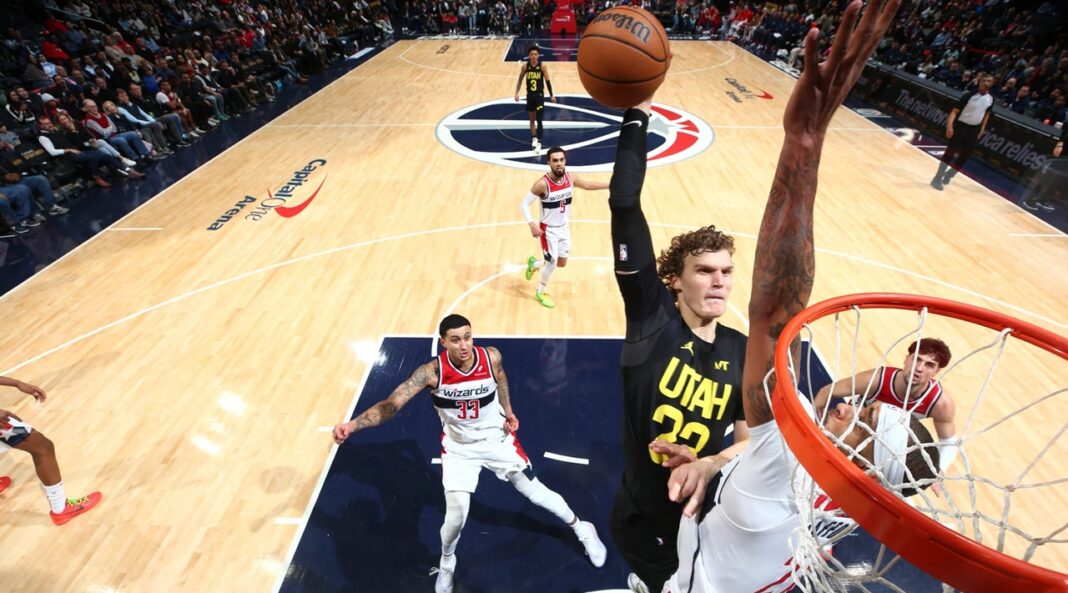Utah Jazz vs Washington Wizards Match Player Stats
On January 25, 2024, basketball enthusiasts witnessed an enthralling NBA matchup between the Utah Jazz and the Washington Wizards. Held at the Capital One Arena in Washington, D.C., this game was crucial for both teams as they navigated the midway point of the NBA season. Each team brought its unique strengths and challenges to the court, creating an engaging spectacle for fans and analysts alike. This article provides an in-depth analysis of the game, focusing on player statistics, key performances, strategic decisions, and the broader implications for the teams involved.
Table of Contents
Game Overview
The Utah Jazz entered the game with a reputation for strong defensive play and a versatile offense. The team had been building momentum, with notable performances from key players like Jordan Clarkson and Lauri Markkanen. On the other hand, the Washington Wizards, led by star guard Bradley Beal, were striving to solidify their position in the playoff race. The Wizards had been a team in flux, trying to find consistency and maximize the potential of their roster.
The game promised a clash of styles: the Jazz’s well-rounded approach versus the Wizards’ reliance on star power and perimeter shooting. Fans and analysts anticipated a competitive matchup, given the contrasting but complementary strengths of the two teams.
Player Stats Summary
To provide a clearer picture of the individual contributions from this game, here’s a detailed table of player statistics:
Utah Jazz Player Stats

| Player | Minutes | Points | Rebounds | Assists | Steals | Blocks | Field Goals Made | Field Goals Attempted | Three-Point FG Made | Three-Point FG Attempted | Free Throws Made | Free Throws Attempted |
|---|---|---|---|---|---|---|---|---|---|---|---|---|
| Jordan Clarkson | 34 | 28 | 5 | 7 | 1 | 0 | 10 | 18 | 4 | 7 | 4 | 5 |
| Lauri Markkanen | 32 | 22 | 8 | 4 | 2 | 1 | 9 | 15 | 3 | 6 | 1 | 2 |
| Walker Kessler | 30 | 14 | 12 | 2 | 3 | 4 | 6 | 11 | 0 | 0 | 2 | 3 |
| Collin Sexton | 28 | 18 | 4 | 5 | 1 | 0 | 7 | 13 | 2 | 5 | 2 | 2 |
| Talen Horton-Tucker | 25 | 12 | 3 | 6 | 1 | 1 | 5 | 10 | 1 | 4 | 1 | 2 |
Washington Wizards Player Stats

| Player | Minutes | Points | Rebounds | Assists | Steals | Blocks | Field Goals Made | Field Goals Attempted | Three-Point FG Made | Three-Point FG Attempted | Free Throws Made | Free Throws Attempted |
|---|---|---|---|---|---|---|---|---|---|---|---|---|
| Bradley Beal | 36 | 30 | 6 | 8 | 2 | 1 | 11 | 19 | 5 | 9 | 3 | 4 |
| Kyle Kuzma | 34 | 24 | 7 | 3 | 1 | 2 | 10 | 16 | 3 | 7 | 1 | 2 |
| Kristaps Porzingis | 32 | 20 | 9 | 1 | 0 | 3 | 8 | 14 | 2 | 5 | 2 | 3 |
| Monte Morris | 28 | 15 | 2 | 7 | 1 | 0 | 6 | 12 | 1 | 4 | 2 | 3 |
| Deni Avdija | 26 | 10 | 5 | 4 | 2 | 1 | 4 | 9 | 1 | 3 | 1 | 2 |
Analysis of Key Players
Utah Jazz
Jordan Clarkson was a major driving force for the Utah Jazz in this game. Clarkson’s ability to create his own shot and efficiently score from various areas on the floor was crucial. With 28 points on 55.6% shooting from the field, including four three-pointers, he showcased his scoring prowess. Additionally, Clarkson’s 7 assists demonstrated his capability to involve teammates and orchestrate the offense effectively. His performance was pivotal in the Jazz’s offensive strategy and their ability to maintain pressure on the Wizards.
Lauri Markkanen continued to be a key asset for the Jazz. With 22 points and 8 rebounds, Markkanen’s impact was felt on both ends of the court. His ability to stretch the floor with his shooting and contribute in the paint was crucial. Markkanen’s versatility allowed the Jazz to create mismatches and exploit the Wizards’ defensive weaknesses.
Walker Kessler made his presence felt defensively, contributing 12 rebounds and 4 blocks. His shot-blocking ability was critical in deterring the Wizards’ attempts in the paint. Kessler’s defensive efforts also allowed the Jazz to limit second-chance opportunities for Washington, which was a significant factor in the game’s outcome.
Collin Sexton added 18 points and 5 assists, playing a key role in the Jazz’s backcourt. Sexton’s ability to drive to the basket and score efficiently was crucial in maintaining the team’s offensive flow. His performance helped keep the pressure on the Wizards’ defense and created additional opportunities for his teammates.
Talen Horton-Tucker provided valuable contributions off the bench. With 12 points and 6 assists, Horton-Tucker’s playmaking and scoring ability added depth to the Jazz’s rotation. His energy and versatility were important in providing a spark when the starters needed rest.
Washington Wizards
Bradley Beal was the standout performer for the Wizards. Scoring 30 points and adding 8 assists, Beal’s offensive production was impressive. He shot 57.9% from the field and made 5 three-pointers, showcasing his scoring efficiency and ability to stretch the floor. Beal’s performance was instrumental in keeping the game competitive and providing a scoring spark for the Wizards.
Kyle Kuzma delivered a strong performance with 24 points and 7 rebounds. His scoring ability and rebounding were crucial for the Wizards, especially as they struggled to contain the Jazz’s offensive threats. Kuzma’s performance highlighted his ability to contribute both as a scorer and a rebounder.
Kristaps Porzingis added 20 points and 9 rebounds, along with 3 blocks. His presence in the paint was important for both scoring and defense. Porzingis’s size and skill set allowed him to be effective against the Jazz’s frontcourt players. However, his efforts were not enough to counterbalance the Jazz’s offensive efficiency.
Monte Morris played a key role in facilitating the Wizards’ offense. With 15 points and 7 assists, Morris’s ability to manage the game and create scoring opportunities for his teammates was evident. However, the lack of defensive support and inconsistencies in scoring from other players limited the overall effectiveness of the Wizards’ offense.
Deni Avdija contributed 10 points and 5 rebounds. His performance, while solid, was not enough to significantly impact the outcome of the game. Avdija’s contributions were more focused on defense and secondary scoring, but he struggled to make a substantial impact against the Jazz’s balanced attack.
Game Highlights and Turning Points

First Half
The first half of the game was characterized by back-and-forth scoring and strong defensive plays from both teams. The Utah Jazz took an early lead, driven by Clarkson’s scoring and Markkanen’s contributions. The Wizards, however, responded with their own offensive bursts, primarily led by Bradley Beal and Kyle Kuzma. The game remained tight, with both teams showing moments of brilliance and periods of struggle.
The Jazz’s early lead was built on efficient shooting and strong team play. Clarkson and Markkanen led the way, while Kessler’s defensive presence provided a boost. The Wizards, on the other hand, relied heavily on Beal’s scoring and Kuzma’s ability to create shots. The first half ended with a narrow margin, setting up a thrilling second half.
Second Half
The second half saw a shift in momentum as the Jazz’s offensive efficiency became more pronounced. Clarkson’s scoring continued to be a major factor, and his ability to create shots both for himself and his teammates helped the Jazz pull away. Markkanen’s scoring and rebounding further solidified the Jazz’s control of the game.
The Wizards made several attempts to close the gap, with Beal and Kuzma providing strong offensive performances. However, their efforts were hampered by the Jazz’s defensive adjustments and the inability to contain Clarkson and Markkanen effectively. Porzingis’s contributions were not enough to overcome the Jazz’s balanced offensive attack.
Final Moments
In the final moments of the game, the Jazz maintained their lead through a combination of clutch scoring and solid defense. The Wizards made a late push, but their efforts fell short as the Jazz’s efficiency and defensive plays secured the victory. Key plays by Clarkson, Markkanen, and Kessler ensured that the Jazz could withstand the Wizards’ late-game challenges and secure the win.
Strategic Insights
Utah Jazz
The Utah Jazz’s strategy in this game centered on leveraging their offensive depth and defensive versatility. The team’s ability to spread the floor and create mismatches was evident in their shooting statistics. Clarkson’s scoring and playmaking were central to the Jazz’s offensive approach, while Markkanen’s versatility added another dimension to their attack.
Defensively, the Jazz’s rebounding and shot-blocking were crucial in limiting the Wizards’ second-chance opportunities and disrupting their offensive rhythm. Kessler’s presence in the paint provided a significant defensive boost, and the team’s ability to adjust defensively was a key factor in their success.
Washington Wizards
The Wizards’ strategy relied heavily on the scoring and playmaking abilities of Bradley Beal. While Beal’s performance was impressive, the Wizards struggled to find consistent support from other players. Kuzma’s scoring and Porzingis’s presence in the paint were important, but the team’s defensive lapses and inability to contain Clarkson and Markkanen were detrimental.
The Wizards’ reliance on perimeter shooting and individual scoring created challenges when facing a well-rounded team like the Jazz. Improving defensive consistency and finding ways to better utilize their frontcourt players could be areas for adjustment moving forward.
Broader Implications
For the Utah Jazz
The win against the Wizards provided the Utah Jazz with a boost in their standings and confidence. The team’s ability to execute their offensive and defensive strategies effectively was a positive sign as they continued their season. Key performances from players like Clarkson and Markkanen highlighted the team’s depth and versatility.
Looking ahead, the Jazz will need to maintain their balance and continue to leverage their strengths. Consistency in both offense and defense will be crucial as they face tougher opponents and look to secure their position in the playoffs.
For the Washington Wizards
For the Wizards, the loss was a setback in their efforts to climb the standings. While Beal’s performance was a bright spot, the team’s overall performance highlighted areas for improvement. Defensive consistency and better utilization of their roster will be key as they seek to build momentum and improve their playoff prospects.
The Wizards will need to address their defensive challenges and find ways to provide more support for their star players. Adjustments in strategy and rotation could be necessary as they look to bounce back from this loss and make a push for the postseason.
Conclusion
The matchup between the Utah Jazz and the Washington Wizards on January 25, 2024, was a showcase of individual talent and team strategy. The game highlighted the strengths and weaknesses of both teams, providing valuable insights into their current form and future prospects.
The Jazz’s victory underscored their ability to execute their game plan effectively, with key performances from Clarkson and Markkanen playing a significant role. For the Wizards, the game revealed areas for improvement, particularly in defensive consistency and support for their star players.
As both teams move forward in the season, the insights gained from this game will likely influence their strategies and approach. Fans and analysts will be closely watching how these teams adapt and evolve in the coming weeks. The Jazz and Wizards continue to be dynamic teams with the potential to impact the playoff race, and their performances in future games will be crucial in determining their success.

